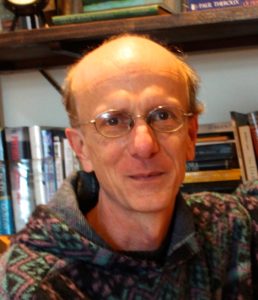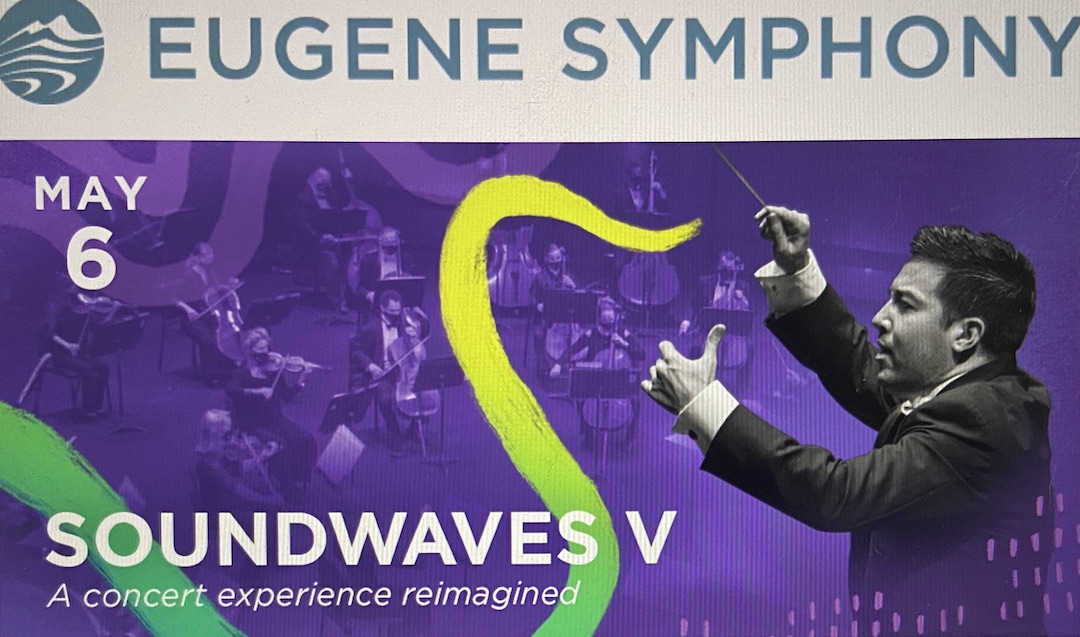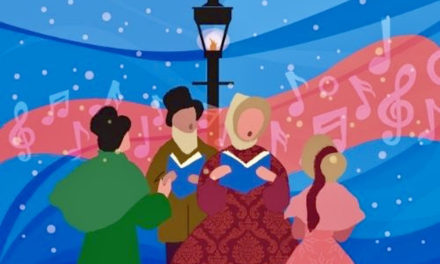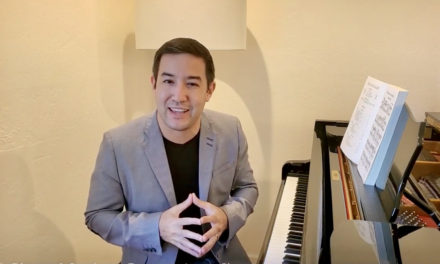By Daniel Buckwalter
(#CommonManAtTheSymphony)
Film score composers take a bow this week with the Eugene Symphony Orchestra.
The string ensemble of the Eugene Symphony opens the virtual Soundwaves V at the Hult Center with gorgeous experimental work by Hildur Guðnadóttir, continues with Bernard Herrmann and also features John Williams.
All three have Academy Awards for Best Original Score to their credit (Williams by himelf has five), and all bless the Eugene Symphony’s production with lush beauty from either their known film scores or other compositions.

Daniel Buckwalter; photo by Randi Bjornstad
My favorite is the short piece by Guðnadóttir, a 39-year-old native of Iceland who won the Oscar for Best Original Score in 2019 (Joker). Her From the Other Place is an experimental piece that takes some time to explain.
Leave it to symphony maestro Francesco Lecce-Chong to explain how Guðnadóttir composed the piece (not for nothing am I also tagged #CommonManAtTheSymphony). There is an interesting camera shot of the score in front of one symphony performer. It looks more like artistic diagrams, perhaps even science diagrams, than notes, but it works beautifully.
If the composition’s dynamics are a mystery, its layered grace from the stage of Silva Concert Hall is a reminder of why I enjoy symphonic music. I’ve listened to it twice now. I’ll listen to it again.
Herrmann collaborated extensively with director Alfred Hitchcock in a lengthy career, and Eugene Symphony plays Suite from Psycho, the 1960 thriller that starred Anthony Perkins and Janet Leigh.
It is moody, sometimes suspenseful and sometimes chaotic. It is the perfect fit of music and film.
Williams’ piece — Air and Simple Gifts — is next in the Soundwaves V lineup. Williams, of course, has so many classic film scores to his credit that the list would be too long to recount. But the 90-year-old composer of course has had many other works, and this particular piece made its debut as a quartet in 2009 for Barack Obama’s first inauguration. As with all new administrations, there is the freshness of a new beginning in 2009. Yes, there is the audacity of hope, and this piece, with a strong tip of the cap to Aaron Copland, reflects that.
Soundwaves V ends the program with bedrock symphonic tradition, Antonín Dvořák’s Serenade for Strings, composed in just two weeks in 1875. The melodic first movement of the piece melts into a waltz for the second movement. The third movement trades lively interactions between the string players, while the fourth movement is slower, tranquil and wistful. All of which culminates in the stirring fifth movement, another lively affair that conveys the spirit of a Bohemian village dance, which Dvořák, born in the Czech Republic, knew intimately.
This is a spirited program from the Eugene Symphony Orchestra. It can be seen through the symphony’s website at EugeneSymphony.org, and it will be available until the morning of May 14.
There’s no charge to watch, but the Eugene Symphony greatly appreciates a suggested donation of $15 per household (or whatever you can afford).












